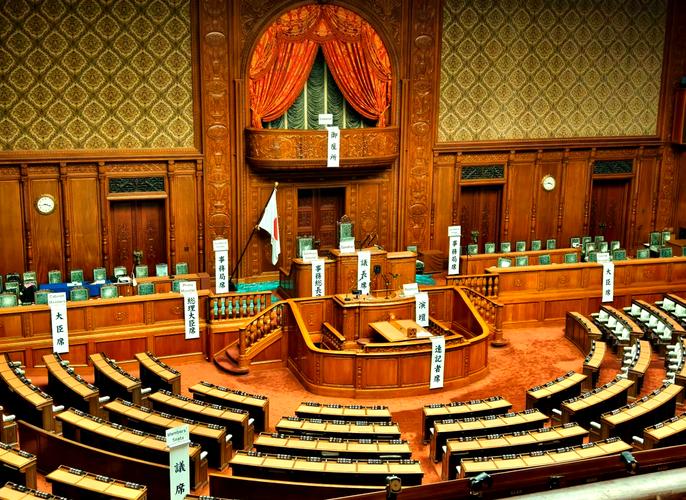
Recently, the ruling party and opposition party in Japan failed to reach an agreement on convening an extraordinary parliament on October 21. This political deadlock not only exposes the fragility of Japan's ruling coalition with a declining birth rate, but also poses a systemic challenge to the economic recovery process. From the failure of policy coordination mechanisms to the setback of market confidence, from the crisis of fiscal sustainability to the obstruction of structural reforms, this incident reflects the deep-seated contradictions in Japan's economic governance.
The obstruction of the temporary parliament directly led to the stagnation of key economic policy agendas. The supplementary budget for the 2024 fiscal year, originally scheduled for review, involves a 37.4 trillion yen economic stimulus plan, of which 21.8 trillion yen in fiscal expenditure is aimed at addressing price increases and ensuring residents' livelihoods. However, due to the loss of a majority of seats in the House of Representatives by the ruling coalition, policy implementation has fallen into a "minority governance dilemma" - the Liberal Democratic Party needs to simultaneously respond to the opposition's demand to amend the Political Funds Regulation Law and the strong dissatisfaction of the public with the continuous rise in prices. Former president of Chuo University in Japan, Masasaburo Sakai, pointed out that the Ishibashi regime is facing a survival crisis where a "vote of no confidence" may be proposed at any time, and policy-making has to shift from "economic priority" to "maintaining public opinion stability". This distortion of policy objectives directly weakens the effectiveness of economic stimulus measures.
The market response confirms the impact of political uncertainty on the economy. After the Liberal Democratic Party lost its majority in parliament, the yen exchange rate continued to be under pressure, and the Japanese stock market experienced significant fluctuations. A strategist at Baida Asset Management pointed out that the sentiment of "selling Japan" and the depreciation of the yen have a synergistic effect, breaking the traditional logic of "yen depreciation boosting the stock market". The senior strategist of Sumitomo Mitsui Trust Asset Management further warned that the yield of short-term treasury bond bonds may decline due to hedging demand, but the long-term financial risk premium will rise with the expansion of debt scale. Behind this market reaction, investors are deeply worried about Japan's fiscal sustainability. In 2023, the issuance of Japanese treasury bond has reached 44.5 trillion yen, and the government debt accounts for more than 260% of GDP, far exceeding the international warning line.
The deeper contradiction lies in the failure of policy coordination mechanisms. The opposition camp is demanding parliamentary review of the Trans Pacific Partnership (TPP) agreement, while the ruling coalition is attempting to maintain policy coherence through "out of cabinet cooperation". This divergence is particularly acute in key areas such as consumption tax adjustment and social security reform. For example, the Japanese Communist Party advocates urgently reducing the consumption tax from 10% to 5% and raising funds by correcting the tax system for the wealthy class; The ruling party is concerned that the reduction of consumption tax will exacerbate the fiscal deficit. This policy opposition not only undermines the effectiveness of tax reduction measures in the economic stimulus plan, but also damages the welfare of the "sandwiched group" and triggers social dissatisfaction.
The obstruction of structural reforms has further exacerbated economic difficulties. Japan's nominal GDP in 2023 has fallen to the fourth place in the world, exposing the failure of the synergy mechanism of "growth fiscal discipline financial stability". Despite the government's efforts to promote innovation driven and international cooperation through the introduction of the "new capitalism" framework, structural issues such as aging population, rigid labor market, and cautious corporate investment remain unresolved. Especially in future industries such as digital transformation, green energy, and artificial intelligence, the mismatch between policy support and market demand leads to low investment efficiency.
The recent obstruction of the temporary parliament serves as a warning that Japan's economic governance needs to reconstruct the coordinated triangle of "growth finance finance". In the short term, a temporary coordination mechanism needs to be established through policy dialogue between the ruling party and the opposition party to prioritize the implementation of the economic stimulus plan; In the medium to long term, it is necessary to promote structural reforms, increase potential growth rates, and improve fiscal sustainability. Only in this way can we break the vicious cycle of "policy deadlock market turbulence economic recession" and achieve true economic recovery.

報告顯示,中國電力投資加速增長,預計2024年電網基建投資將超過5300億元。
近日,市場迎來了一則引人注目的消息:工業巨頭3M公司(MMM.N)在本周五公布了其季度業績報告,隨後股價飆升至近兩年來的
最近,外媒給OpenAI算了筆賬,今年可能要血虧50億美元。
近日,巴黎奧運會和世界鐵人三項協會聯合發布了一項重大決定,宣布因塞納河水質污染問題,原定於近期進行的奧運會鐵人三項首次下
當地時間7月18日,法國巴黎發生了一起令人震驚的持刀襲警事件。
近期,一則重大消息在國際舞臺上引起軒然大波,馬來西亞宣布加入金磚國家。
調查發現,互聯網和智能手機的使用幹擾了韓國近五分之一學生的生活。